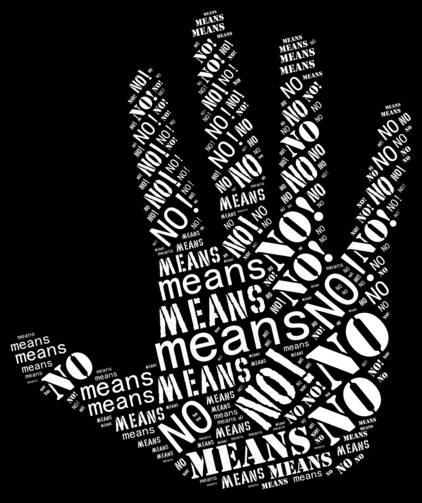On April 29, New York City government officials, community organizers and allies against sexual violence gathered on the steps of City Hall for the 17th annual Denim Day. The event sounds like the name of a Levis jeans cyber-sale, but the actual background may startle you—or at least, I hope it does.
Denim Day began in 1999 following a decision by the Italian Supreme Court to overturn a rape conviction because the victim wore “very, very tight jeans.” The court concluded that the victim must have assisted in the removal of her clothing, because of its tightness, and therefore participated in consensual sex. Even more disturbing is the fact that the rape victim was only 18 years old. Her rapist was her 45-year-old driving instructor. And the crime occurred during her first driving lesson. The day after the court decision, women in the Italian Parliament wore jeans to work as a form of protest, and the tradition has continued since that time.
Victim-blaming has become all too frequent, especially when discussing sexual violence. But during the event, New York City Public Advocate Leticia James encouraged survivors of sexual assault to come forward: “I want to let you know that you have allies. Everyone here today is your ally.” In the United States, one in five women has been raped, and most victims know their rapist. This means most of us likely know multiple survivors of rape, even if we are not aware of it.
I was among those gathered in the crowds as the chants rang out: “No matter where I am. No matter what I wear. “Yes” means ‘yes,’ and ‘no’ means ‘no.’” A part of me felt honored to rally alongside empowered women and progressive men, standing against sexual violence. At the same time, the day made me feel genuinely disgusted by the fact that sexual assault remains a prevalent problem in our schools, neighborhoods and homes. And it is frustrating to feel that it is still necessary to raise awareness about the evil of sexual violence. Shouldn’t we all understand that sexual violence is not just a crime but an offense against every single human? How can some look at survivors of rape and believe that s/he must have provoked her/his assailant?
As a young and faithful Catholic woman, this issue resonates with me on a personal and spiritual level. Through no fault of my own, I could have been the freshman who trusted a male friend too easily. I could have been the girl cornered on the subway after a late night spent working. I lament the fact that I have to constantly remain conscious of my routes, the men I interact with, and my type of dress because I am concerned about my safety. Women do not deserve to live in this type of fear.
I want to approach this sensitive issue as holistically as possible and hopefully, spark important dialogue. I believe that conversations around sexual assault need to change in our communities, churches and homes. We need to hold perpetrators accountable for their actions. We need to make ourselves responsible for raising a future generation who honors consent and values the sacredness of the body.
Given that most perpetrators are men, sexual assault is not only a woman’s issue. It is a men’s issue, too. We are all responsible for teaching our men accountability and respecting their female counterparts. Contrary to popular belief, men are not hyper-sexual beings without a sense of self control. Regardless of how revealing, a woman’s dress is never an invitation or excuse for sexual assault. No rape survivor should ever bear the blame of her assailant’s lustful and violent actions.
As a Catholic I pray for a world in which bodies are not simply outlets for someone else’s sexual vices. As disciples of Christ, we must educate our community, work to finally eradicate sexual assault, and allow a more equal, peaceful world to come to fruition.
Caitlin Ramiro is an editorial assistant at America.








